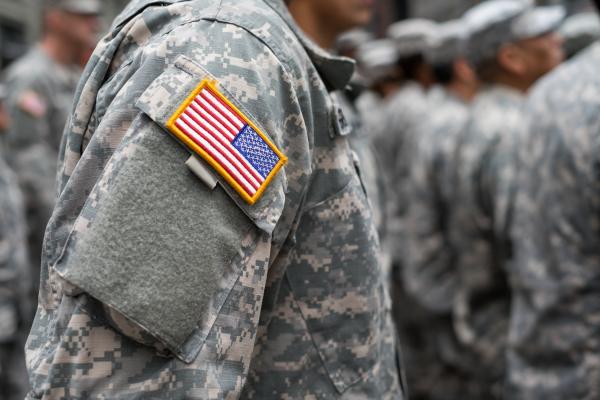I SERVED FIVE years as a U.S. Army reserve chaplain. This spring I submitted my resignation to the president of the United States. I refuse to support U.S. policies on armed drones, nuclear weapons, and the policy of “preventive war.” I told the president, “I refuse to serve as an empire chaplain.”
I grew up skeptical of military solutions and decided not to register for the Selective Service System when I turned 18. How, then, did I end up in the Army?
The call to bring my religious values of justice and compassion into the Army chaplaincy came in response to three realities: soldiers burdened by multiple deployments, a military replete with uniformed evangelicals occupying Muslim lands, and the torture at Abu Ghraib.
As chaplain I was pastor: nurturing the living, caring for the wounded, and honoring the dead. However, I also claimed the prophetic biblical imperative to “speak truth to power.”
When I witnessed drone warfare in Afghanistan, my anguish peaked. In 2012, I preached a sermon titled “A Veterans Day Confession for America” lamenting drone killing and “preventive war.” Military commanders reacted harshly. I was discharged with a reprimand and negative evaluation. I learned that U.S. military chaplains are not allowed to have a prophetic voice; they are expected to be nothing more than empire chaplains.
Empire chaplains, like empire churches, represent what T. Jeremy Gunn calls the “American National Religion,” an unholy trinity of governmental theism, military supremacy, and capitalism as freedom. These chaplains and churches betray authentic religion by their words, their presence, or, most often, their silence. They cloak state violence with the garb of piety, lend religious legitimacy to military campaigns, and conflate God and country.
The authentic Christian church can prevent this spiritual bankruptcy by exercising the right to speak for God prophetically against a nation and its policies. America needs this prophetic witness now.
The U.S. uses just war tradition to endorse and justify violence rather than prevent and limit it. President Obama and CIA Director John Brennan have sought to rationalize drone killing by invoking just war principles, such as humanity, necessity, proportionality, and discrimination. Brennan’s predecessor, Gen. Michael V. Hayden, argued in a New York Times opinion column in February that drone strikes effectively kill “intolerable” terrorist threats, like those in “training camps where men leapt off motorbikes and fired on simulated targets.” For Hayden, drone strikes appear to be a convenient opportunity, not an unavoidable necessity.
Drones pose a unique moral hazard. Drones make killing easy and appear risk-free and moral, thereby lowering the threshold for the use of lethal force. Hayden conflates threats he considers “intolerable” with imminent threats to Americans, masking vital distinctions. Unlike Hayden, I believe that killing people we suspect might possibly harm us at some point in the unspecified future can never be morally justified.
The U.S. has killed between 4,885 and 8,393 people with drones since 2001. And the U.S. possesses nearly half of the 15,700 nuclear warheads in existence, with hundreds ready to launch on warning. These weapons terrorize humanity and threaten the Earth, yet the country plans to spend billions modernizing and miniaturizing them. The church should not tolerate this, but rather should demand that the U.S. stop killing people with drones and cancel nuclear modernization plans.
When I joined the Army, I joined the Department of Defense, not a department of pre-emptive, aggressive, endless war. Drone strikes and nuclear intimidation will not bring security. U.S. officials graced with tolerance and humility—and a church courageous enough to resist American National Religion—might.

Got something to say about what you're reading? We value your feedback!

